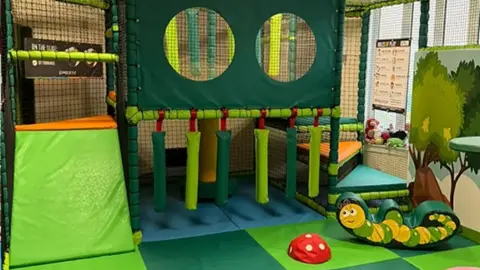Autism charity boss criticises watchdog inspection
 Autism and Neurodiversity North Scotland
Autism and Neurodiversity North ScotlandA charity that supports autistic and neurodiverse children has criticised a healthcare watchdog's inspection of its services.
The Care Inspectorate graded Autism and Neurodiversity North Scotland's Aberdeen Playscheme "weak" in four categories.
Inspectors said some children were at an increased risk of choking because they ate food while lying on the floor or on a sofa.
But the charity's chief executive Billy Alexander said the report showed a "lack of understanding" of children's complex needs, and he called for a review of inspection procedures.
The Care Inspectorate, when asked for comment, said it had nothing to add to what was written in its report.
Autism and Neurodiversity North Scotland (A-ND) offers sensory facilities during the day and after school at the play scheme.
Following a visit in February, the Care Inspectorate reported weaknesses in staffing, leadership, setting and quality of care, play and learning.
Inspectors said they found "most children" did not experience "safe and positive mealtimes".
They said staff did not make an effort to make a space for eating, and tables were dirty.
Inspectors also said radiators in some rooms were scalding hot.
Four families out of 68 who regularly attended have decided to not return to the play scheme since the report was published.
 Autism and Neurodiversity North Scotland
Autism and Neurodiversity North ScotlandBut Mr Alexander said the report was unfair.
He told BBC Scotland News: "The report doesn't consider the specific approaches and interventions that we often require to take.
"Many of our children and young people have very specific needs that may require them to eat on the floor, for example, and be supported on a one-to-one basis of course."
He added: "For those who do not understand the context that does sound negative and that is furthering stigma and judgement on our community."
Mr Alexander said actions had been taken to make improvements since the report, adding that the majority of requirements had been met.
He said the Care Inspectorate should work with and support providers, and not just oversee and scrutinise them.
Mr Alexander added: "It does not promote or support collaborative working.
"Many organisations and services like ours will be fearful of standing up."
